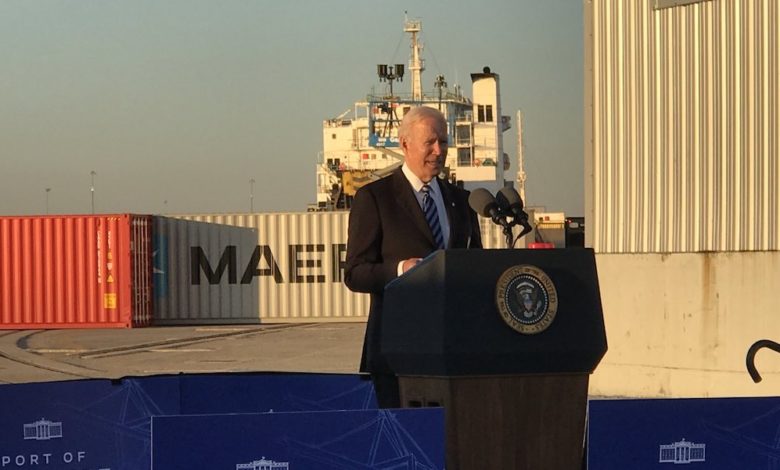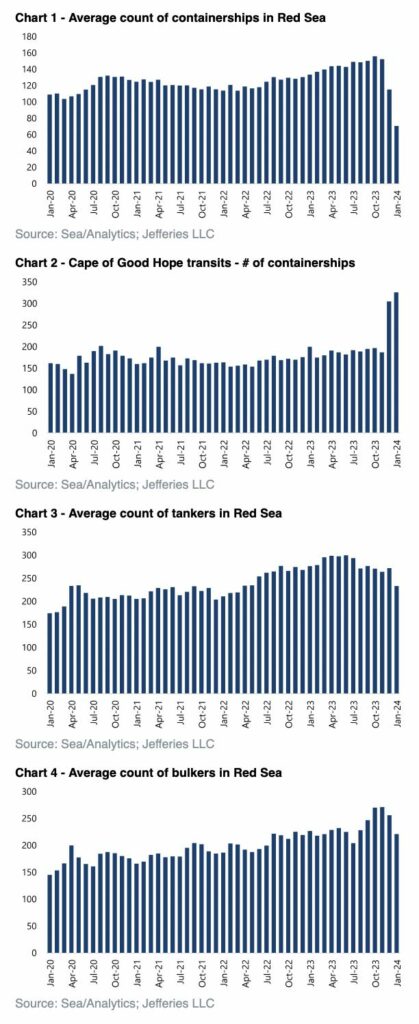Biden: Air strikes are not deterring Houthis

The president of the world’s most powerful nation has conceded his nation’s military efforts to make navigation safe again in the Red Sea are yet to work.
The Houthis from Yemen and US naval forces have met fire with fire again over the past 24 hours with more ships targeted by the Iranian-backed militia and further installations bombed by US Central Command.
Two anti-ship ballistic missiles were fired at the Chem Ranger, a Marshall Island-flagged chemical tanker overnight. Shipping databases show the ship is managed by Interunity Management in Greece.
“The crew observed the missiles impact the water near the ship. There were no reported injuries or damage to the ship,” US Central Command said on social media platform X. US Navy warplanes carried out further strikes yesterday in response to the latest attacks.
More than 30 merchant ships have been targeted by the Houthis since November, leading to a massive redrawing of the global seaborne map.
US president Joe Biden on Thursday admitted the US counterstrikes had yet to deter the Houthi attacks, but added: “Are they going to continue? Yes.”
The European Parliament adopted yesterday a resolution condemning the recent attacks on commercial shipping in the Red Sea and calling for immediate and concerted EU efforts including a naval operation.
During a meeting with shipping industry representatives yesterday, Arsenio Dominguez, the new secretary-general of the International Maritime Organization reiterated the message that seafarers are innocent victims in the volatile Red Sea situation.
Secondly, freedom of navigation must be upheld, to guarantee global trade and the flow of goods by sea. Further, there must be caution and restraint to avoid further escalation of the situation in the Red Sea and broader area, Dominguez said.
Ships in all segments are diverting to avoid the dangerous situation in the Middle East (see charts from Jefferies below) with traffic through the Suez Canal nosediving by more than a third year-on-year in the opening days of 2024.
One segment where the longer voyages are likely to raise concerns is the livestock carrier sector. Bloomberg has reported the Bahijah livestock carrier appears to have diverted towards South Africa on its voyage from Australia to the Middle East, the extra weeks onboard to get to its final destination will likely lead to a number of animals perishing.


“Biden: Air strikes are not deterring Houthis”. As expected, but it was good target practice and did destroy a fair amount of Houthi ordnance.
“the extra weeks onboard to get to its final destination will likely lead to a number of animals perishing. ” Likely? Pretty well guaranteed.
Here we go again another livestock shipment debacle, who thought it was a smart idea to try a delivery through the Red Sea in the
current climate, once again the animals pay the price.
I am a livestock producer who is strongly opposed to this trade.
Cheers, but the consignees don’t give gnat’s f***.